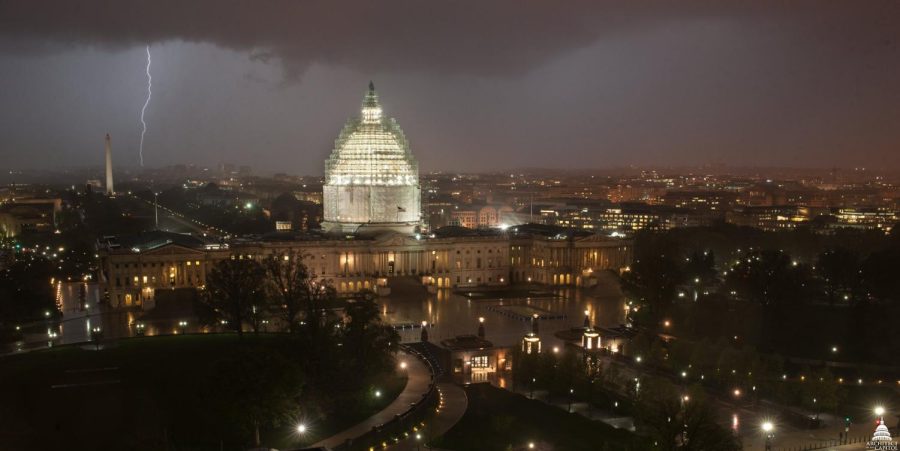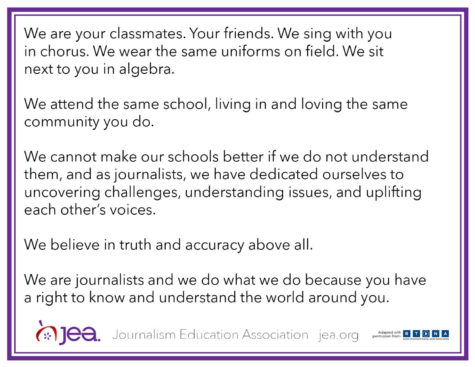It’s Time to Protect the Rights of American Voters
Why democracy is more important than an arcane Senate procedure
January 14, 2022
This week, Congress will set the tone for American democracy.
In front of the Senate is a major piece of legislation centered around the protection of voting rights. Within the next couple of days, Senate Majority Leader Chuck Schumer (D-NY) will bring the bill to the Senate floor for debate, using an existing Senate rule to bypass the usual 60-vote threshold needed to bring a bill to the floor.
From there debate will ensue, Democrats advocating for the passage of the new legislation and Republicans opposing it. Then the bill will come up against the largest obstacle standing in the way of its passage: the Senate filibuster. Without the 10 Republican votes needed to push it through the Senate, the bill will not become law.
Unless, of course, all 50 Democrats were to unite in enabling a “carve-out” of the filibuster, making an exception in the rule to allow voting-rights bills to pass with a simple majority. And while many Democrats have demonstrated support for this route, at least two stand in the way.
On Thursday, Senator Kyrsten Sinema (D-AZ) reiterated her approval of the legislation. She also said, however, “I will not support separate actions that worsen the underlying disease of division infecting our country.” She will not support the change to the filibuster rule needed to pass the bill.
If events surrounding the aftermath of the 2020 general election—the January 6 insurrection on the United States Capitol and various community responses to the Covid-19 pandemic—have shown us anything, it’s that the division which Senator Sinema referenced continues to run through this nation.
But when zooming in specifically on the fight for voting rights expressed in the new piece of legislation, the division separating different ideological factions isn’t merely political; the two sides of this debate aren’t just liberal versus conservative. This is about the division of those who want to strengthen our democratic practices and those who want to weaken them.
In the spirit of our country, ensuring the continuation of democracy via equitable access to the ballot box is unequivocally necessary and far more essential than the preservation of a Senate rule which can be abused by those seeking to limit the non-negotiable right to vote.
The new piece of voting legislation, known as the “Freedom to Vote: John R. Lewis Act” was passed by the House on Thursday and essentially combines two other voting bills, the Freedom to Vote Act and the John R. Lewis Voting Rights Advancement Act, into one giant package.
At its core, the Freedom to Vote Act is about making it easier for people to vote. Not only would the bill mandate no-excuse absentee balloting across the country (meaning that any voter unable to vote in-person, or who would prefer not to, would be able to request a mail-in ballot), but it would also require every state to offer, at minimum, 15 days of early voting.
The bill would also address voter registration, outlining the establishment of automatic voter registration systems, as well as election-day registration options nationwide.
The second of the two bills that were incorporated into the new package, named appropriately after the monumental civil rights leader and congressman, is the John R. Lewis Voting Rights Advancement Act. This piece of legislation seeks to restore elements of the Voting Rights Act of 1965 that were stricken down by the Supreme Court’s 2013 decision in Shelby County v. Holder. Under the new bill, states and political subdivisions with a history of voting-rights violations and discriminatory practices will be required to receive preclearance from the Department of Justice or the U.S. District Court for the District of Columbia before implementing new voting-related laws.
Together, these pieces of legislation that were placed into the House’s new voting rights package work to promote, secure, and protect voting rights for everyone across the nation.
Many states have taken their own steps to fortify voting rights for their residents.
Here in Colorado, several of the Freedom to Vote Act’s provisions are already in play.
Nearly nine years ago, the Voter Access and Modernized Elections Act, also known as House Bill 13-1303, was signed into state law by then-Governor John Hickenlooper (D-CO).
In addition to expanding registration access, allowing Coloradans to register to vote at a polling location as late as election day, H.B. 13-1303 mandates mail-ballot elections, meaning that every registered voter in the state is sent a returnable ballot in the mail prior to election day. Though the new “Freedom to Vote: John R. Lewis Act” wouldn’t mandate mail-ballot elections like what occurs in Colorado, the option to vote by mail would be given to every American voter.
Actions like these are the definition of accessibility in voting. This is democracy on display.
So why do we need voting rights legislation on a federal scale if states have the power (responsibility) to pass similar measures in their own jurisdictions?
Many states, primarily led by members of Republican state legislatures, have not only neglected their responsibilities to ensure the right to vote for their constituents; they’ve deliberately imposed statewide measures to obscure voting efforts, placing unnecessary, undemocratic hurdles on the path to the ballot box.
The state of Georgia has seen some of the most consequential restrictions on voting. Senate Bill 202, which was signed into law by Governor Brian Kemp (R-GA), will impact voting in numerous ways.
Not only does it decrease the amount of time given to voters to request an absentee ballot by more than half, but it also limits access to ballot drop boxes for voters to return their ballots. Under the new law, the drop boxes must be kept inside government offices and voting sites, meaning that once those buildings close, voters will lose access to returning their ballots. In other words, instead of having the opportunity to drop off their ballots at the time that works best for them, voters must adhere to the hours of specific government establishments, which may be difficult or close to impossible for voters with varying schedules.
Another element of the bill involves access to mobile voting sights. During the 2020 presidential election, certain counties in Georgia set up mobile voting vehicles that were able to meet voters in common areas. Thousands of voters utilized these mobile sights, which, under the new law, are banned unless the governor declares a state of emergency.
Arizona, the state which Senator Sinema represents, is another state in which restrictive voting laws are being introduced. S.B. 1485, approved by Governor Doug Ducey (R-AZ), will remove voters from the state’s Early Voting List (a commonly-used system with which participating Arizona voters automatically receive mail ballots) if they are considered infrequent mail voters.
Texas has also become a hub for voting restrictions. Senate Bill 1, which was signed into law by Governor Greg Abbott (R-TX) last year, includes several provisions that limit voting access. For one, it bans 24-hour voting. Around-the-clock voting was made available in Harris County (home of Houston) during the 2020 general election, and many have raised concerns about how eliminating this option will impact Texans with work hours that conflict with limited voting hours.
According to the first visible words plastered at the top of this piece of legislation, S.B. 1 is an act “relating to election integrity and security, including by preventing fraud in the conduct of elections in this state; increasing criminal penalties; creating criminal offenses.”
The Cybersecurity and Infrastructure Security Agency, overseen by the United States Department of Homeland Security released a statement which said, “The November 3rd [2020] election was the most secure in American history.”
Still, baseless claims that the 2020 election was “rigged,” claims which have been disproven and dismissed time and time again, in audits and courts alike, have been perpetuated by prominent political players.
This false reality of fraud has been used as justification for the passage of bills limiting voting access across the country, S.B. 1 being a prime example.
As long as this disinformation surrounding election security continues to spread—there is little indication that it will stop—lawmakers will continue to use it as an excuse to pass legislation limiting access to the ballot box.
This makes clear that the pertinence of the Freedom to Vote Act and the John R. Lewis Voting Rights Advancement Act mustn’t be ignored. Not by the Senators who claim to support them. Not by the American people.
During the Georgia runoff elections which were decided just over a year ago, I volunteered with an organization to write letters and encourage Georgians to cast their ballots in the influential race. During the letter-writer training, I read something in the instruction guide that has stuck with me ever since. It talked about emphasizing the word voter, as opposed to the action of voting, in each letter. In a lot of ways, that piece of advice is so much more than a little tip for a writing campaign.
The bills being introduced by state GOP legislators around the country aren’t just anti-voting bills. They are anti-voter bills. Yes, these bills attack the action of voting, an action that is essential to the foundations of our government and our country. But, at their cores, what these bills are really attacking are American voters. It isn’t just about preventing a vote from being cast; it’s about preventing a voter from casting their ballot, preventing a voter from using their distinctive voice.
What the “Freedom to Vote: John R. Lewis Act” will do is protect these voices. All of them. And with that, it will protect the promise of our American government.
Because the only type of democracy is a pro-voter democracy.






